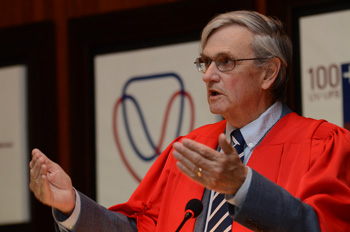Latest News Archive
Please select Category, Year, and then Month to display items
14 June 2024
|
Story Anthony Mthembu
|
Photo Suplied
 Jeremiah Hlahla, a UFS student completing his PhD in Botany at the University of Debrecen as part of an exchange initiative funded by the Erasmus+ Mobility Programme.
Jeremiah Hlahla, a UFS student completing his PhD in Botany at the University of Debrecen as part of an exchange initiative funded by the Erasmus+ Mobility Programme.
As part of an exchange initiative facilitated by the Erasmus+ Mobility Programme, Jeremiah Hlahla, a student at the University of the Free State (UFS), is nearing the completion of his PhD studies at the University of Debrecen in Hungary. Hlahla’s journey, which began in February 2024 and is set to conclude in July 2024, has been a remarkable learning opportunity. “As a first time-traveller to Europe, I have thoroughly enjoyed engaging with people from different countries and cultures,” he said.
The benefits of international collaboration
Hlahla is currently pursuing a PhD in Botany, focusing on plant stress physiology. “My current PhD project investigates the physiological, biochemical and morphological responses of vegetable-type soybean, or edamame, to combined drought and heat stress,’’ he explained. He considers the University of Debrecen the ideal institution to complete his research due to its extensive expertise and resources in similar projects. He noted that his colleagues at Debrecen conduct significant work on plant protection against biotic and abiotic stresses, including salt and drought stress, as well as proteins and amino acids in barley and other legumes.
Given the vast knowledge available on similar projects, Hlahla has found substantial engagement with his work at the University of Debrecen. “Upon arrival, I delivered an introductory lecture presenting my UFS project on the synergistic effects of combined drought and heat stress on the physiology and biochemistry of edamame. It was an engaging session as everyone could relate to my work and asked many questions,’’ he said.
Insights gained from the exchange
Hlahla has also gained valuable lessons that will assist him in his research career, including biotechnology and physiology tools. “I learned how to prepare samples and use high-performance liquid chromatography (HPLC) and reversed-phase ultra-high-performance liquid chromatography (UHPLC) to quantify proteins and amino acids,’’ he said. These techniques are beneficial not only for his current work but will also support future soybean research.
As his experience at the University of Debrecen nears its end, Hlahla reflects on the collaborations and friendships he has formed, which stand out as a significant highlight.
Well known US and international law scholar honoured
2014-09-22
 Prof Ralph Mawdsley
Photo: Stephen Collett |
On 11 September 2014 the Faculty of Law inaugurated Prof Ralph Mawdsley as extraordinary professor. Prof Mawdsley is from the Cleveland-Marshall School of Law at the Cleveland State University in Ohio. He delivered his inaugural lecture titled ‘Diversity, Affirmative Action and Higher Education: Searching for Clarity in Federal Court Decisions’.
In his lecture Prof Mawdsley traced the complex road the US has travelled since the seminal judgment in Brown v Board of Education and the various differing views on the interpretation of compelling interests – with particular reference to race and diversity in the context of university admission policies.
In her introductory address, Prof Caroline Nicholson, Dean of the Faculty of Law, referred to Prof Mawdsley’s phenomenal resume of countless publications, national and international awards and numerous citations in court opinions, appellate briefs and law treatises. The honour extended to Prof Mawdsley coincides with the continuous drive by the UFS to establish a reputable international profile. During his visit, Prof Mawdsley consulted with various UFS staff members with regard to mutually interesting research matters.